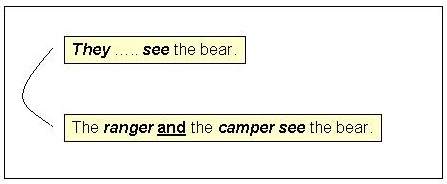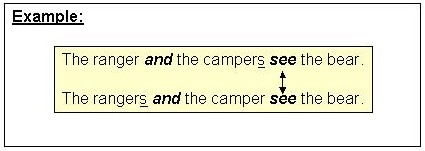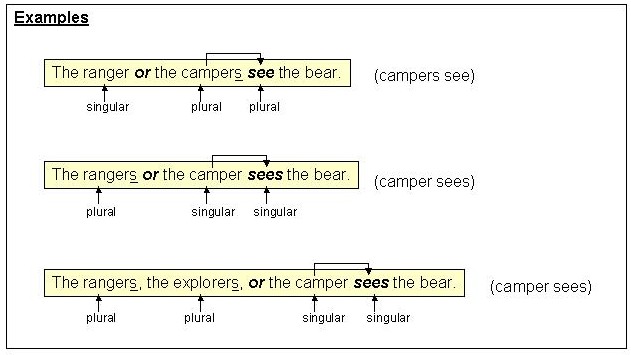Subject and Verb Agreement
Link 1
SUBJECT-VERB RULE #1 – Two or more singular (or plural) subjects joined by and act as a plural compound subject and take a plural verb (singular + singular = plural).
You can check the verb by substituting the pronoun they for the compound subject.

Or and nor as joiners work somewhat differently from and. While the word and seems to ADD things together, or and nor do not. They suggest a CHOICE.

Look at this sentence.

This sentence makes use of a compound subject (two subject nouns joined together by or). Each part of the compound subject (ranger, camper) is singular. Even though both words function together as subject (joined by or), the subject still remains SINGULAR (ranger or camper) since a CHOICE is implied.
This compound subject, therefore, requires a singular verb to agree with it.
SUBJECT-VERB RULE #2 – Two or more SINGULAR subjects joined by or (or nor) act as a singular compound subject and, therefore, take a singular verb to agree.
Note: Two or more plural subjects joined by or (or nor) would naturally take a plural verb to agree.

If the individual parts of the compound subject are joined by and, always use a plural verb.

If the individual parts of the compound subject are joined by or or nor, use the verb form (singular or plural) which will agree with the subject closer to the verb.
